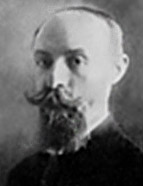

In early 1919, Georges Le Gentil, married with two children, settled in Paris after Ernest Martinenche, then professor of Spanish at the Sorbonne, asked him to teach a course in Portuguese language and literature, a novelty due to the initiative of the Portuguese government. In 1922, Georges Le Gentil also took on the first course in Brazilian literature, inaugurated one hundred years after the proclamation of independence by the Brazilian Empire. In 1931, the Junta de Educação Nacional [National Education Board], a Portuguese government body, also financed the creation of a “lectorat” to support Georges Le Gentil in his teaching work. It was at this time that the first nucleus of a library of Portuguese and Brazilian works was formed at the Sorbonne, whose collection was enriched by donations from the diplomat Marquês de Faria, in addition to books sent by the National Education Board, an institution that supported Portuguese studies in Paris. Orlando Ribeiro, who was recruited as a Portuguese “lecteur” before being appointed professor at the University of Lisbon, recalls the symbolic importance acquired by the Institute of Portuguese and Brazilian Studies at the Sorbonne, founded in 1935 and directed by Georges Le Gentil: “ With the bibliographic resources of the Portuguese Institute, the great libraries of Paris, his private library, and the assistance of readers from various specialities and backgrounds, the modest office attached to the room where he taught gradually became the first centre for Portuguese documentation in France...”. (“Preface”, Mélanges d’études portugaises offerts à M. Georges Le Gentil, 1949, p. 4)
In 1934, Georges Le Gentil was awarded the title of “Doctor honoris causa” by the University of Coimbra, a year before becoming a full professor at the Sorbonne. He would later receive the title of Knight of the “Légion d’honneur” (1950). Fernando Romero highlights the French academic’s great reputation in Portuguese academic circles in the mid-1930s: “His studies serve as a benchmark for us, due to their impartiality and critical serenity and the enormous amount of light they shed on some problems in our literary historiography.” ( Georges Le Gentil , Oliveira Martins, 1935, p. 14) This praise, among many others, explains the international recognition that the French scholar achieved in the two main Portuguese-speaking countries: Georges Le Gentil was made an official of the National Order of the Southern Cross (Brazil) and a commander of the Order of Sant’Iago da Espada, the most important Portuguese honorary order. This recognition reflects his great efforts to promote Portuguese studies in France. Thus, in order to remedy the problem of the shortage of students at the Portuguese Institute he directed, which was mainly due to the absence of this language in secondary education, he obtained the introduction of a Portuguese test in the Spanish teaching qualification exam from 1938 onwards. Under the ministry of Jean Zay, Georges Le Gentil worked towards the opening of a Portuguese degree in French higher education, a reform that was delayed by the outbreak of the Second World War. In an article published in the journal O Instituto de Coimbra in 1928, Georges Le Gentil already inscribed his dedication to the promotion of Portuguese culture in a “tradition” of interest in Portugal in France, sketching a genealogy of the most notable Lusophiles in which he held a prominent place. In 1946, at the age of 71, he retired, but this did not mean any interruption in his work to promote Portuguese culture and history, until his death in 1953. It should be noted, however, that his departure from the direction of the Institute of Portuguese and Brazilian Studies contributed in part to the decline of the institution, which, moribund at the end of the 1960s, was absorbed by the Department of Iberian Studies at the Sorbonne Nouvelle, a university founded in 1971. It should be remembered that the Portuguese Language Teaching Qualification (Agregação de Português) was only introduced in 1973, three years after the creation of the CAPES competitive examination.
This work is financed by national funds through FCT - Foundation for Science and Technology, I.P, in the scope of the projects UIDB/04311/2020 and UIDP/04311/2020.
